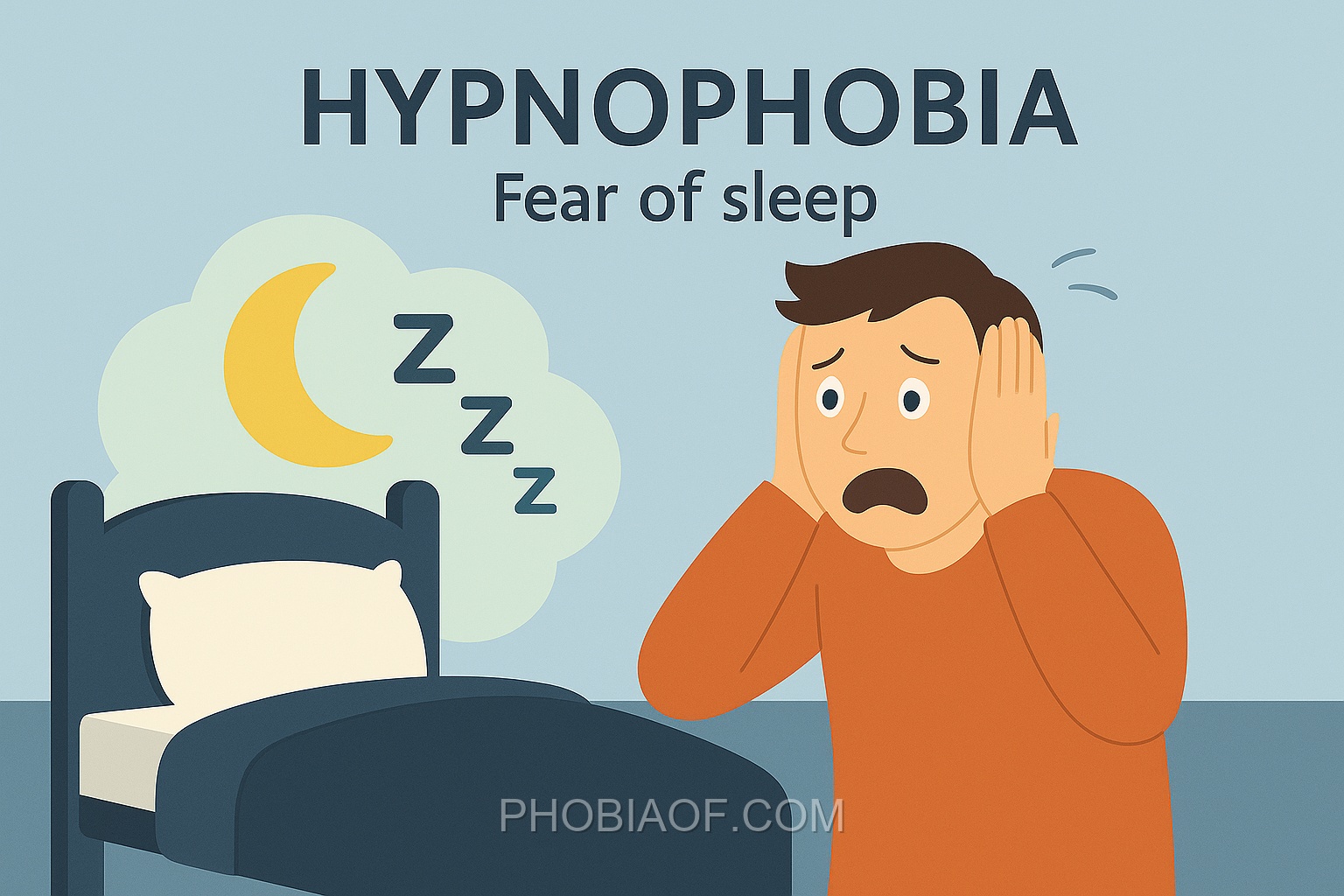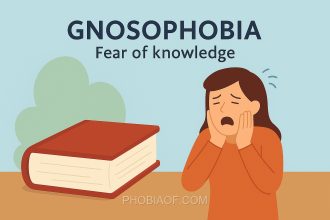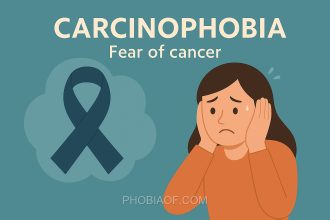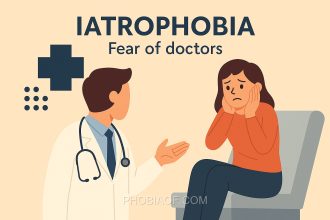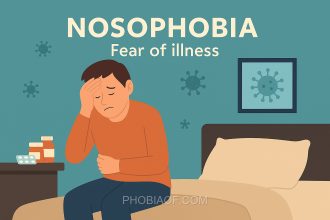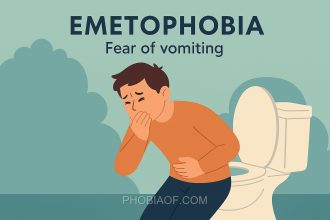Have you ever felt a sense of dread as bedtime approaches, not because of a looming deadline or a particularly gripping book, but simply due to the thought of falling asleep? If so, you might be experiencing something known as Hypnophobia, the fear of sleep.
Hypnophobia comes from the Greek words “hypno,” meaning sleep, and “phobos,” meaning fear. It’s more than just a reluctance to sleep; it’s an intense, sometimes irrational fear that can severely disrupt a person’s life. Imagine the exhaustion of needing rest but feeling terrified at the mere thought of closing your eyes.
This fear can manifest in various ways, affecting people both mentally and physically. Generally, those with hypnophobia may experience:
- Difficulty falling asleep despite being tired
- Anxiety or panic attacks at bedtime
- Chronic fatigue due to lack of restful sleep
- Increased stress levels impacting daily activities
Understanding and compassion are crucial, as those affected by hypnophobia often feel isolated due to the unique nature of their fear. By shedding light on this condition, we can help reduce the stigma and encourage those struggling to seek support and find relief.
Causes of Hypnophobia
Hypnophobia, or the fear of sleep, can stem from various causes. Understanding these causes can help in addressing the phobia effectively. Below are some common reasons why someone might develop this fear:
- Genetic Predisposition:
Some individuals may have a genetic predisposition to anxiety disorders, which can include phobias like hypnophobia. If a close family member has a history of anxiety or phobic disorders, there might be a higher chance of developing similar issues.
- Traumatic Experiences:
Experiencing or witnessing a traumatic event related to sleep, such as nightmares, sleep paralysis, or night terrors, can trigger hypnophobia. The fear of re-experiencing these distressing events can lead to an avoidance of sleep.
- Learned Behavior:
Observing someone else’s fear or negative reactions to sleep can influence an individual to develop similar fears. Children, in particular, may adopt the fears exhibited by parents or other influential figures.
- Psychological Factors:
Underlying mental health conditions such as generalized anxiety disorder or post-traumatic stress disorder (PTSD) can contribute to the development of hypnophobia. The fear of losing control or vulnerability during sleep may be heightened by these conditions.
- Environmental Factors:
Stressful environments or situations that disrupt normal sleep patterns can exacerbate fear of sleep. For example, irregular work schedules, noisy sleeping environments, or significant life changes can all play a role.
Some interesting theories suggest that hypnophobia may also be linked to an evolutionary survival mechanism. In ancient times, being asleep could make individuals more vulnerable to predators, leading to an innate fear of sleep as a protective measure.
Research into hypnophobia continues to evolve, providing deeper insights into its origins and potential treatments. Understanding these causes is crucial in developing effective strategies to manage and overcome this fear.
Symptoms of Hypnophobia
Hypnophobia, also known as the fear of sleep, can be a distressing condition that significantly impacts a person’s well-being. Individuals experiencing this phobia often feel an intense fear or anxiety about going to sleep or the idea of sleeping. Recognizing the symptoms is the first step towards understanding and seeking help. Here are some common symptoms associated with hypnophobia:
- Intense Fear or Anxiety: A pervasive and overwhelming fear of sleep or sleeping situations.
- Panic Attacks: Sudden episodes of intense fear that may include heart palpitations, shortness of breath, or dizziness when thinking about or attempting to sleep.
- Sweating: Excessive perspiration that occurs as a physical response to anxiety related to sleep.
- Rapid Heartbeat: An increased heart rate when faced with the thought of going to bed or sleeping.
- Avoidance of Sleep Triggers: Actively avoiding situations or environments that are associated with sleep, such as bedrooms.
- Overwhelming Dread: A persistent and irrational sense of dread at the prospect of sleeping.
- Insomnia: Difficulty falling or staying asleep due to anxiety or fear.
- Emotional Distress: Feelings of sadness or hopelessness related to the inability to rest properly.
When severe, these symptoms can interfere significantly with daily life, affecting both physical health and emotional well-being, and leading to chronic sleep deprivation and its associated consequences.
Treatment for Fear of Sleep (Hypnophobia)
If you are struggling with a fear of sleep, known as hypnophobia, it’s important to know that you are not alone and that this phobia can be treated and managed over time. With the right approach, you can overcome this fear and enjoy restful nights. Below are some effective treatment options and coping strategies to help you on your journey to recovery.
Therapeutic Treatment Options
- Exposure Therapy: This therapy involves gradually and systematically facing the fear of sleep in a controlled environment. By slowly exposing yourself to the idea of sleep, you can desensitize the fear response over time, leading to reduced anxiety and improved sleep patterns.
- Cognitive-Behavioral Therapy (CBT): CBT aims to identify and change the negative thought patterns that contribute to your fear. By restructuring these thoughts, you can alter your emotional response and behavior towards sleep, making it less intimidating.
- Counseling: Working with a therapist or counselor can provide a safe space to explore the root causes of your fear and develop personalized strategies to manage it. Counseling offers emotional support and guidance throughout the treatment process.
Self-Help Coping Techniques
- Relaxation Exercises: Techniques such as deep breathing, progressive muscle relaxation, and visualization can help calm your mind and body, making it easier to approach sleep with less fear.
- Meditation: Regular meditation practice can reduce stress and anxiety, fostering a sense of peace and acceptance that can ease the transition into sleep.
- Support Groups: Joining a support group can provide the opportunity to connect with others who understand what you’re going through. Sharing experiences and coping strategies can be empowering and comforting.
Medication
For severe cases of hypnophobia, medication such as anti-anxiety drugs may be considered. However, it is important to focus primarily on therapy and coping skills as these offer long-term solutions and address the root of the phobia.
Encouragement: Remember, seeking professional help is a positive and brave step if hypnophobia is interfering with your life. Therapists and mental health professionals are equipped to help you navigate this journey, offering support and expertise. Overcoming a fear of sleep is possible, and with dedication and the right resources, you can achieve restful and peaceful nights.
Conclusion
Understanding the causes and symptoms of hypnophobia can empower individuals to effectively address this sleep-related fear. By recognizing the underlying factors and identifying the manifestations of this phobia, individuals can take proactive steps toward managing it. Armed with knowledge, one can begin to dismantle the barriers hypnophobia creates, and move towards a healthier relationship with sleep.
It’s important to remember that overcoming or managing phobias is a journey that many have successfully embarked upon. With time, patience, and the right support, it is entirely possible to alleviate the grip of hypnophobia. Whether through therapy, medical support, or self-help strategies, there are numerous paths to finding relief.
Take the first step today by considering therapy or discussing your concerns with a healthcare professional. You are not alone, and with the right guidance, a peaceful night’s sleep can be within reach. Embrace the journey towards overcoming hypnophobia with optimism and courage, and remember, help is always available when you seek it.
